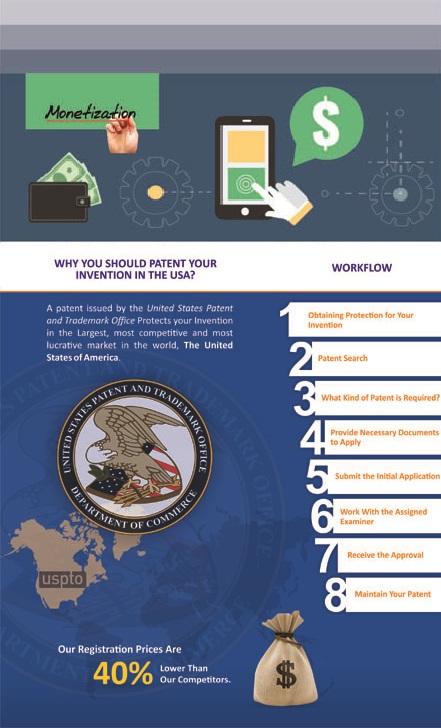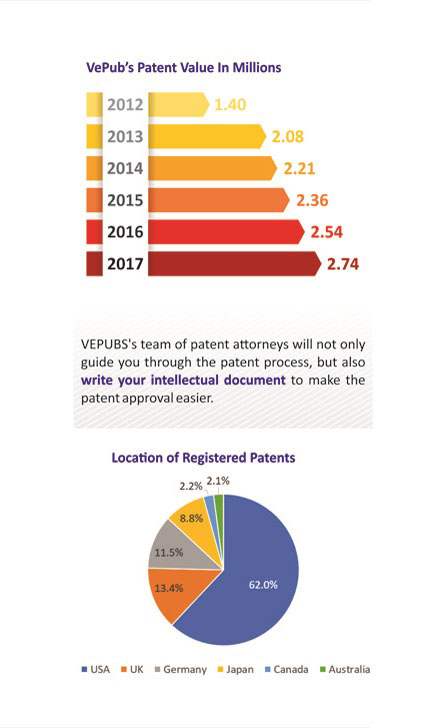
Patents protect novel, useful and non-obvious processes, machine, manufacturers, or compositions of matter. The patent is issued by the United States Patent and Trademark Office (USPTO). Obtaining a patent gives the patent owner the exclusive right to exclude others from selling or offering to sell, using, making or importing the invention.
A patent is not about granting the owner the right to make, use, offer for sale or import. The key is ‘exclude others.’ Once the patent is awarded, it is valid for 20 years from the date of the filing.However, in exchange for this “legal monopoly,” the investor must disclose how to practice the invention. This description is submitted as part of the application to obtain the patent.
Obtaining a patent brings tremendous value to a company, firm, organization, corporation or even an individual. A patent is critical to entrepreneurs or corporations when searching for investment and it generates revenue for the entity through the development, marketing and sale of the product, license to other corporations. A patent also allows the entity to cross-license their product to another entity in return for a similar license and helps in securing market position or obtaining exclusivity. It excludes competitors from entering your business. A patent also protects your production from duplication.

VePub’s marketing, commercialization and monetizing team also works on finding suitable methods to monetizing your invention. We will search the market for multinational corporations interested in your invention and facilitate the transaction.
In this regard, you will receive:
VePub has worked with many international companies and have registered and marketed many patents in the last few years. A few of companies we have been worked with them are;

Industry Trends Research: Each patent in our program begins with an analysis of current and expected future sector trends to discern the role to be played by your patent.
Competitive Landscape Reports: We search and determine other companies investing in the technology in the patent, its size and the scale of investment in the technology.
Strategy Development: Using insights gained from technical and financial experts, we gather data such as patent life, competitive landscape, international coverage and other measures that aid in determining value. Our collective analysis including economic opportunities and risk assessment feeds into the monetization strategy our experts design.
Valuation: We determine the worth of your patent on the market using relevant data which precede this analysis. This results in accurate recommendations that make the next step easier.
Execution: We execute based on the best strategy designed by our team of experts to deliver the best results for your patent.

| ITEM | TIMING | COST |
| NDA | 2 business days | Free |
| Initial Draft Preparation | Two weeks | Miscellaneous Fees |
| Patent Search | 2 weeks | $500 |
| Provisional Patent Application (PPA) | 2 weeks | $600 |
| Provisional Patent Application (PPA) Professional Filing PPA | 4 weeks | $1200 |
| Non-provisional APP Drafting and Submission | 4 weeks | $5000 |
| Non-provisional APP Drafting and Submission (Expedite Results) | 4 weeks | $7500 |
| Trademarks | 2 weeks | $900 |
| Design Patent | 2 weeks | $1700 |
| Office Action Response | 2 weeks | $3100 |
| Logo Design | 1 week | $250 |
| Marketing Campaign | 1 year | $1000 +22.5% (split profit) |



This is an animated dialog which is useful for displaying information. The dialog window can be moved, resized and closed with the 'x' icon.
These items will be permanently deleted and cannot be recovered. Are you sure?